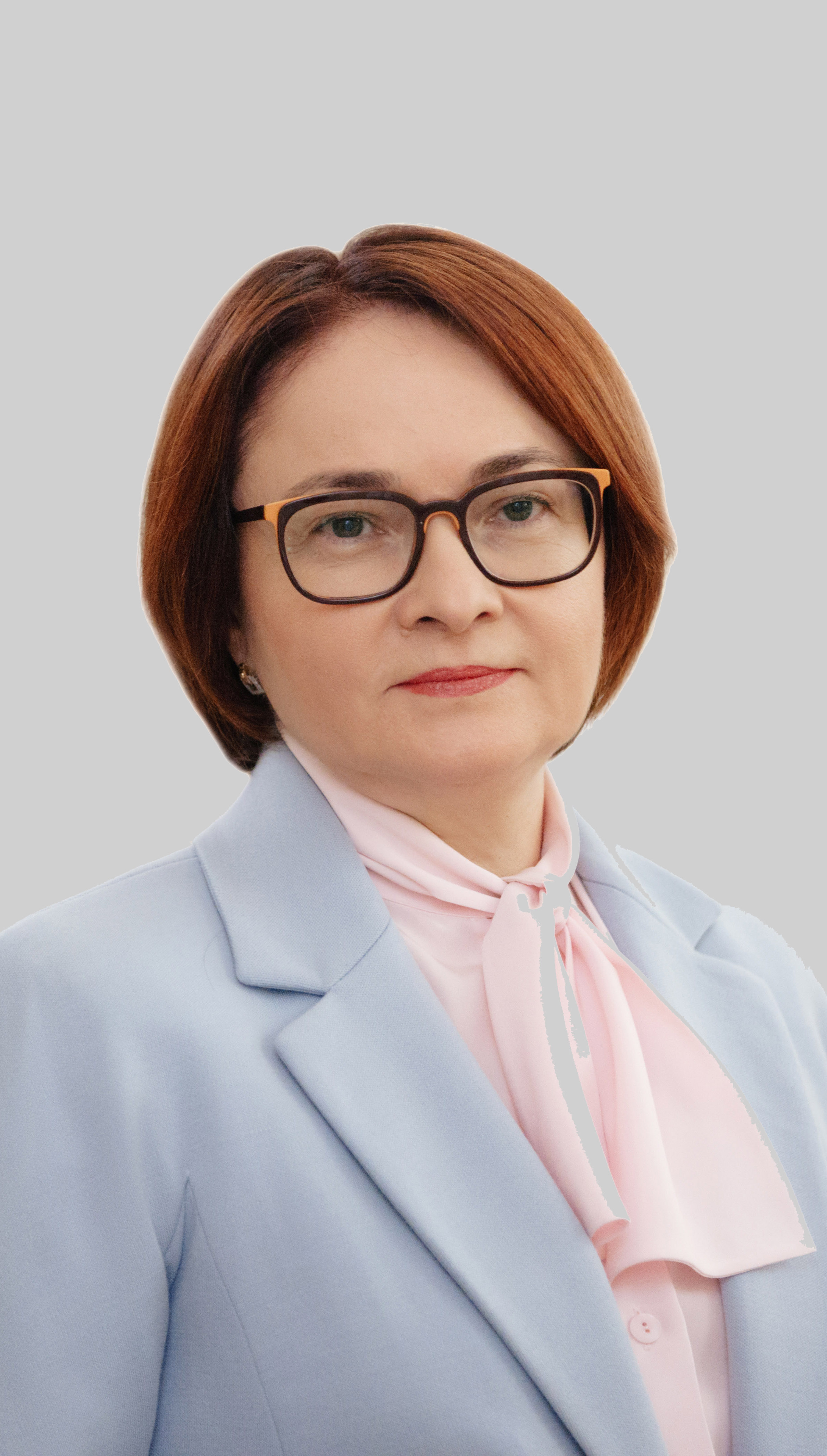Tuesday, Oct 12, 2021 | 08:30 AM - 09:00 AM
Location: HQ1-BL-517 (AV CORE)
 |
Elvira Nabiullina Governor of the Central Bank of Russia |
Education
1986: graduated from the Department of Economics of the Lomonosov Moscow State University.
Career
1991–1992: Chief Specialist in the Directorate on Economic Reform of the Standing Committee of the USSR Scientific and Industrial Union Board, Moscow.
1992–1994: Chief Specialist, Consultant in the Economic Policy Directorate of the Russian Union of Industrialists and Entrepreneurs.
1994–1994: Advisor at the Expert Institute of the Russian Union of Industrialists and Entrepreneurs.
1994–1995: Deputy Head of the Economic Reform Department — Head of the Division for State Regulation of Economy at the Ministry of Economy of the Russian Federation.
1995–1996: Deputy Head of the Economic Reform Department at the Ministry of Economy of the Russian Federation.
1996–1997: Head of the Economic Reform Department at the Ministry of Economy of the Russian Federation; Member of the Ministry’s Board.
1997–1998: Deputy Minister of Economy of the Russian Federation.
1998–1999: Deputy Chairperson of Promtorgbank’s Management Board.
1999–1999: Executive Director of the Eurasian Ratings Service.
1999–2000: Vice President of the Centre for Strategic Research.
2000–2003: First Deputy Minister of Economic Development and Trade of the Russian Federation.
2003–2005: President of the Centre for Strategic Research.
2005–2007: Head of the Expert Council of the Organising Committee for Russia’s Presidency of the G8 in
2006; Research Team Head at the Centre for Strategic Research.
From 24 September 2007: Minister of Economic Development and Trade of the Russian Federation.
From 12 May 2008: Minister of Economic Development of the Russian Federation.
May 2012—June 2013: Aide to the President of the Russian Federation. From June 2013: Governor of the Bank of Russia. Member of the Bank of Russia Board of Directors according to Article 15 of the Federal Law ‘On the Central Bank of the Russian Federation (Bank of Russia)’.
 |
Alfred Kammer Director European Department, IMF |
Alfred Kammer is the Director of the European Department at the International Monetary Fund since August 2020. In this capacity, he oversees the IMF’s work with Europe.
Mr. Kammer was previously the Chief of Staff of the Office of the Managing Director, advising the Managing Director on strategic and operational issues and overseeing operations for the senior management team; Deputy Director of the Strategy, Policy and Review Department, overseeing the work on Fund strategy and surveillance policy; Deputy Director of the Middle East and Central Asia Department, overseeing regional economic developments and financial sector issues; Director of the Office of Technical Assistance Management, advising management on technical assistance operations and overseeing fundraising and global partnerships for capacity building; and Advisor to the Deputy Managing Director. Mr. Kammer also served as resident representative of the IMF in Russia. Since joining the IMF, Mr. Kammer worked with countries in Africa, Asia, Europe, and the Middle East, and on a wide range of policy and strategic issues.
Key Points:
Quotes:
“Emerging markets were able to create a confidence buffer over the last 10 years. However, if used too fast or inappropriately, these buffers can be quickly destroyed.” Elvira Nabiullina
“Central bank digital currencies are the future and central banks need to start working on them” Elvira Nabiullina
“The fintech revolution and the introduction of digital central bank currencies will bring many benefits, but the risks need to be managed to reap these benefits.” Alfred Kammer
Contributor: Rasheeda Smith Yee, IMF, Secretary’s Department